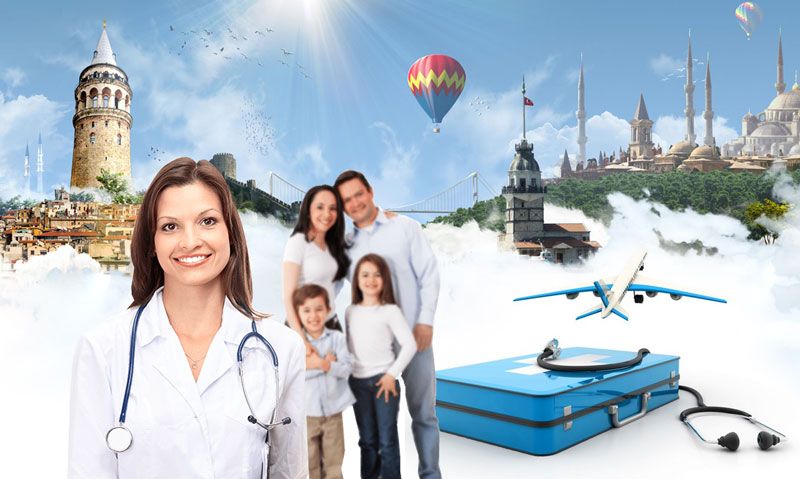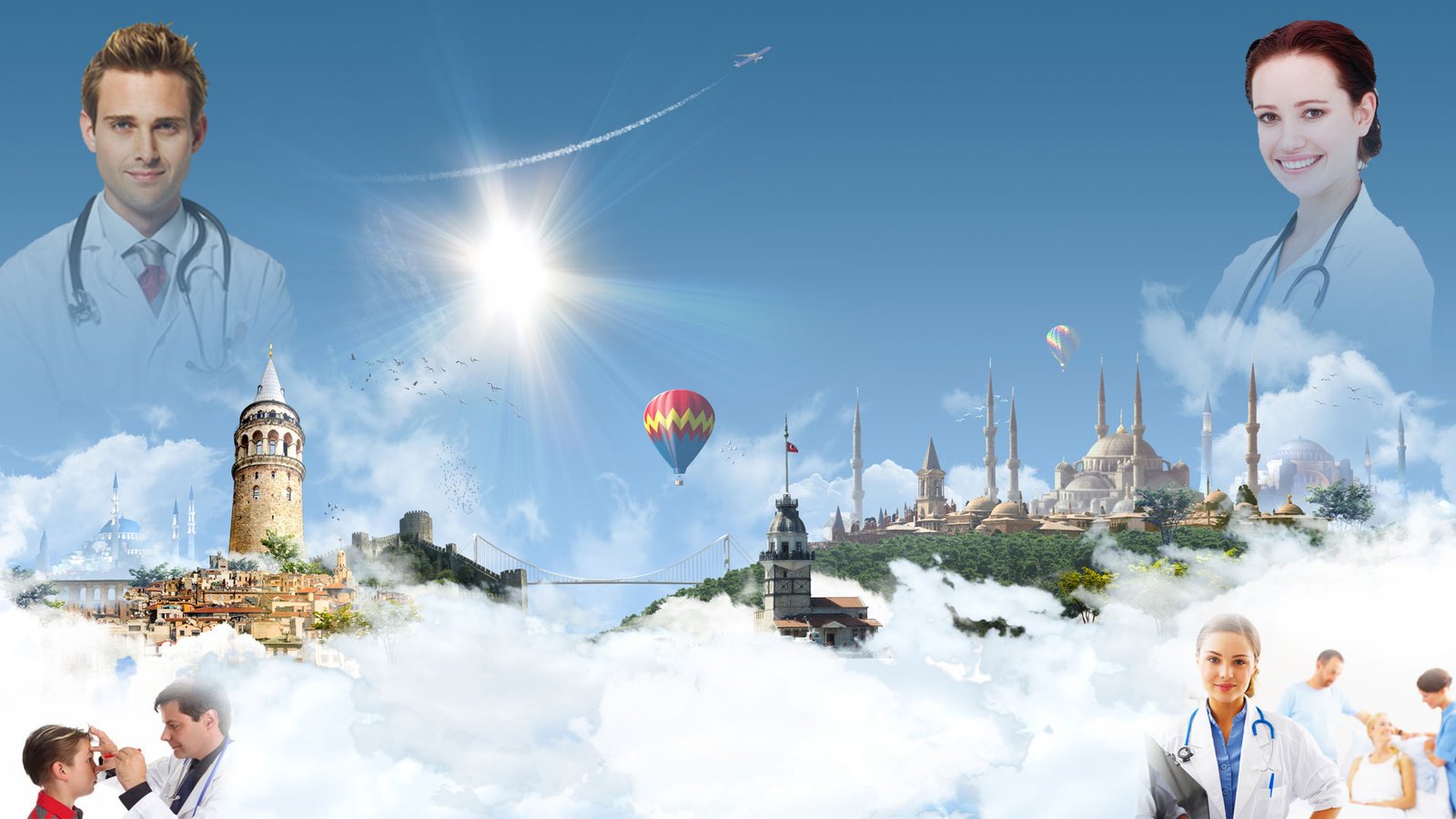About Turkey
Where East meets West — Turkey is considered to be both Asia and Europe, with 95% of its landmass being located in Asia. Full of culture and history, long before the Roman and Byzantine Empires and a land once occupied by some of the greatest empires of history, known as the Ottoman Empire. Of Turkey’s 1,200+ medical facilities, more than 40 of which are JCI-accredited and this comprises an even mix of publicly and privately owned hospitals and clinics.
What Makes an Excellent Medical Tourism Destination?
700,000 annual medical tourists are attracted to Turkey annually, traveling from all around the globe, particularly from within Europe, UK and the Middle East. Dental, Cosmetic, Bariatric, and Reproductive procedures are common, including Veneers, Hair Transplants, Gastric Sleeve Surgeries, Gastric Bypass Surgeries, and IVF. Popular medical tourism destinations outside of the capital of course, comprise Istanbul and other areas like Antalya and Izmir.

Until recent decades Turkey is celebrated by travellers because of its white sand beaches, blue seas and palaces. The Eurasian nation is currently trying to bolster its reputation within the field of medicine. It is estimated that this number had topped one million by the end of 2018.
There are some institutions that compromise on safety criteria to tack on costs — these are those that thrifty tourists must look out for. Our main goal is to help you for the best choices for medical tourism.
Medical tourism is among Turkey’s fastest-growing businesses and is estimated to contribute $4bn into the country’s economy annually. Doctors flock in from throughout the globe for a range of procedures, from the decorative to the essential, costing anywhere from a couple of hundred dollars to nearly $20,000.
The price of therapy remains the most attractive element for the vast majority of visitors, especially those from countries with no state system that is paid-for. In the united states, where healthcare costs are expensive for those with insurance, it is a. For example, the fee for a heart valve replacement in the US is $150,000, whereas it’s only $17,000 in Turkey. Some centers in Turkey like Memorial Hospitals have a well deserved reputation in special surgeries like heart surgeries, organ transplantations, IVF procedures and bariatric surgeries.
Shorter waiting times are a factor, too. Patients can wait up to 18 months to get a knee replacement, especially in the UK, in which the overstretched NHS is dealing with a backlog. In Turkey, most patients may have the operation in under two weeks from the purpose of reserving. It’s a very simple equation for all: the less time they spend waiting for a procedure, the sooner they can return on their own feet.
Popular Cities in Turkey
Turkey’s capital city is Ankara, situated in-land, however, Istanbul is the most famous and most populous city in Turkey with some 15 million inhabitants. Straddling Asia and Europe, the city brings 13 million tourists each year, which makes it the fifth most popular tourist destination in the world.
Other areas include Antalya in the south east and Izmir is your west. The east of the country is more recently because of its proximity to Iraq and Syria, and usually popular among tourists as a result of continuing Kurdish-Turkish conflict.
Holiday resorts in the south, such as Bodrum and Marmaris are ever popular with sunseekers looking for reasonably priced all-inclusive 5-star luxury hotels to vacation in.
The discovery of this world’s earliest known site at Gobekli Tepe in the South-Eastern Anatolia Region has cast over mankind history and consequently attracts a sizable number of’History Tourists’. This UNESCO World Heritage Website is thought to be over 11,000 years old, built during a time people were understood to be simple hunter-gatherers.
What About Weather?
Being situated on the Mediterranean Sea, the south shore of Turkey benefits from the cooling breeze, however, this does not take away from the intense heat experienced during the summer months of June, through August, where temperatures can reach up to the’40s (104°F). During Fall and Spring, the weather is warmer and winters are mild.
Given the country’s size, Turkey does not have weather throughout; the area is mostly semi-arid steppe, whilst the Black Sea region in the north west is far milder than the Mediterranean Sea area.
Sandflies and mosquitos can be a problem, especially during the summer, so make sure you shield them against them. Malaria is very rare but seeks the help of a practitioner before traveling.
Planning Your Travel to Turkey
The famous Ataturk International Airport of istanbul sits 24 kilometers beyond the town and is home to the Airlines. Most major airlines service here. All the other major towns are serviced by their own foreign airports, with several low-cost domestic airlines linking them together, such as AtlasGlobal, IZair, Onur Air, Pegasus Airlines and SunExpress.
Turkey includes a train paths linking Istanbul to Ankara, the significant cities, most importantly. City buses are reliable and good value, although taxis are inexpensive, but make sure you negotiate the price before beginning any travel.
Do You Need a Visa for Turkey?
With 90 days per trip for many nationalities being obtainable easily, visa restrictions are minimal. But, e-visas are needed in advance for a fee before coming for those holding US, UK, Australian, Chinese and Spanish passports, to mention a few. The likes of French, German, Russian and Singaporean passport holders may enter visa-free.
For Indian and Pakistani nationals could get conditional visas which expire after just 30 days and are offered on arrival at Ataturk International Airport. To find out more on visa requirements, check with this Ministry of Foreign Affairs site.
Additional Helpful Info
The Turkish Lira (TRY) is the local currency where $1 USD is worth about 7 TRY, £1 is 8.7 TRY and 1EU is 7.6 TRY (11th May 2020). You should check the currency daily because it may be volatile nowadays.
ATMs are in abundance across Turkey and take all bank cards (Visa, Mastercard). Amex payment and credit card are accepted in most restaurants and outlets, with the local food vendors or food marketplace stalls, only accepting money. As service isn’t included in restaurants, tipping is expected, this is between 5-10 percent. Taxi rides usually do not be tipped, just piled.
Turkish is the local language with the eastern Kurds speaking Kurdish too. English is spoken by many locals working in tourist places
Islam (99.8percent ) is undoubtedly the main religion in Turkey, using a tiny Christian population (0.2percent ). Turkey is a secular country where there is no’official’ state religion. Elements of classic culture remain, with much being modernized or ‘Westernized’
There are lots of public holidays, most notably Labor Day and Commemoration of Ataturk at May, Ramazan Feast at June, Kurban Bayrami in August and Republic Day in the end of October. Dates may change as crowding is common during busy areas on nowadays, year to year so make sure you check in advance.

